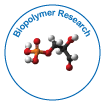A Platform for Sludge Management and Biomethanation that Uses Immobilised Bacteria and Sodium Thiosulphate to Promote Their Disintegration
Received Date: Oct 03, 2022 / Published Date: Oct 28, 2022
Abstract
The goal of the current study was to better understand lucrative biomethanation using sludge that had undergone sodium thiosulphate-induced immobilised protease secreting bacterial disintegration (STS-IPBD). At a dosage of 0.08 g/g SS, STS disperses the flocs and aids in the subsequent bacterial breakdown. Bacterial immobilisation boosts cell hydrolytic activity for efficient sludge liquefaction. When compared to immobilised protease secreting bacterial disintegration, STS-IPBD achieved a greater liquefaction of 22%. (IPBD alone). When compared to suspended free cells, immobilised cells had a maximal specific growth rate (max) of 0.320 h1 according to the kinetic parameters of the Line Weaver Burk plot analysis, demonstrating the advantage of immobilisation. Bacterial floc dispersion and immobilisation play a significant role in biomethanation since methane generation (0.32 gCOD/g COD) was quite high.
Citation: Davis J (2022) A Platform for Sludge Management and Biomethanation that Uses Immobilised Bacteria and Sodium Thiosulphate to Promote Their Disintegration. Biopolymers Res 6: 129.
Copyright: © 2022 Davis J. This is an open-access article distributed under the terms of the Creative Commons Attribution License, which permits unrestricted use, distribution, and reproduction in any medium, provided the original author and source are credited.
Share This Article
Recommended Journals
Open Access Journals
Article Usage
- Total views: 1084
- [From(publication date): 0-2022 - Feb 23, 2025]
- Breakdown by view type
- HTML page views: 894
- PDF downloads: 190
